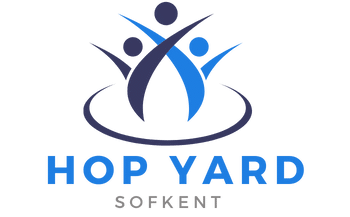Can UK speech-language therapists develop personalized digital therapy programs for patients with aphasia?

The field of speech and language therapy is continually evolving, especially with the advent of digital technology. In the UK, speech-language therapists are at the forefront of this digital revolution, seeking innovative ways to support people with aphasia—an impairment of language ability following damage to specific brain regions, commonly resulting from a stroke. The use of digital technology, notably telehealth, presents an opportunity for therapists to develop personalized therapy programs that cater to the unique needs of each patient. As Scholars and health professionals, their objective is to amplify the rehabilitation process and improve communication outcomes for people living with aphasia.
The Role of Digital Therapy in Aphasia Treatment
The integration of digital technology in healthcare, recognized as telehealth, is drastically transforming how therapeutic services are delivered. Telehealth allows therapists to provide therapy remotely, at any time, overcoming geographic constraints and facilitating increased access to healthcare services.
Lire également : Mastering coaching: essential guides for personal growth
Researchers have conducted numerous studies in an attempt to understand the feasibility and effectiveness of digital therapy for aphasia. Preliminary analysis based on Google Scholar and PubMed search results has yielded promising findings.
A 2020 cross-sectional study found that people with aphasia who used digital therapy apps showed significant improvement in their speech and language skills over time. These apps, which often encompass language games and exercises, were found to be user-friendly, engaging, and adaptable to the user's level of linguistic proficiency.
A voir aussi : How can UK family practitioners use telehealth to increase engagement in preventive care among teenagers?
The Value of Personalized Digital Therapy Programs
The concept of personalized therapy is not new in the health industry. However, its application in speech-language therapy, particularly digital therapy, is gaining traction. Personalized digital therapy programs, as the name suggests, are tailored to fit the individual needs, preferences, and goals of the patient.
Aphasia affects people differently. The extent, type, and severity of language impairment vary from one person to another, making it essential for treatment to be tailored to individual needs. A personalized approach ensures that therapy aligns with the patient's communication goals and caters to their specific language deficits.
In one study, participants reported higher engagement and improved outcomes when therapy was individualized rather than generic. As such, a personalized digital therapy program could enhance user engagement, motivation, and ultimately, the effectiveness of therapy.
The Potential of UK Speech-Language Therapists
UK speech-language therapists are equipped with the knowledge, skills, and resources to develop personalized digital therapy programs. They are trained to assess, diagnose, and manage communication disorders, including aphasia. Their training and experience place them in a unique position to understand the individual needs of people with aphasia and tailor therapy accordingly.
Furthermore, their affiliation with professional bodies such as the Royal College of Speech and Language Therapists (RCSLT) provides them with access to resources and support to keep up with current research, legislation, and best practice guidelines.
Challenges and Future Directions
Although the potential benefits of personalized digital therapy programs for people with aphasia are evident, there are still challenges to overcome. These include technical difficulties, lack of digital literacy among older patients, and gaps in research on the long-term effectiveness of digital therapy.
It's important that these obstacles be addressed. This could involve providing technical support for users, offering training to improve digital literacy, and conducting further research to explore the long-term benefits and cost-effectiveness of digital therapy.
In summary, the potential of UK speech-language therapists to develop personalized digital therapy programs for people with aphasia is evident. With continued advancements in digital technology, their role is becoming increasingly important in the successful rehabilitation of people with aphasia. The future of speech-language therapy is digital, and UK therapists are well-equipped to lead the way.
Telehealth and Speech-Language Therapy: A Marriage of Technology and Care
In the realm of speech and language therapy, telehealth has emerged as a significant game-changer. The application of telehealth in this area has allowed therapists to transcend the traditional barriers of time and location, creating avenues for more flexible and accessible treatment options.
For people with aphasia, telehealth can be a particularly beneficial tool. These individuals often face challenges in communication, making routine tasks like scheduling appointments or commuting to clinics burdensome. Telehealth can ameliorate these issues by bringing therapy into the comfort of their own homes.
Research from sources such as Google Scholar and PubMed substantiates the potential benefits of telehealth for people with aphasia. Studies have demonstrated that digital therapy can lead to significant improvements in speech and language skills. Additionally, the interactive nature of digital therapy apps, which include language games and exercises, can enhance user engagement and motivation.
Moreover, telehealth services can be customized to accommodate the varying needs of individuals with aphasia. This is particularly crucial, given the vast range of severity and types of language impairment associated with this condition.
However, deploying telehealth in speech-language therapy is not without challenges. Notably, technical difficulties and the lack of digital literacy, especially among older patients, may create barriers to the effective use of this technology.
Embracing the Future: The Role of UK Speech-Language Therapists in Digital Therapy
The potential of UK speech-language therapists in the development and implementation of personalized digital therapy programs for people with aphasia is immense. These professionals are equipped with the necessary skills and knowledge to assess, diagnose, and manage communication disorders effectively.
Their affiliation with professional bodies like the Royal College of Speech and Language Therapists (RCSLT) offers them an avenue to stay abreast of the latest research, legislation, and best practice guidelines. This continuous learning process enriches their capacity to deliver high-quality care to individuals with aphasia.
Furthermore, the ability of these therapists to customize therapy programs can significantly enhance treatment effectiveness. By tailoring therapy to align with the specific linguistic deficits and communication goals of the patient, therapists can ensure that the therapy is not only effective but also engaging and motivating for the patient.
Indeed, digital technology presents a revolutionary opportunity for UK speech-language therapists to reshape the landscape of aphasia treatment. However, it's crucial to address the challenges associated with this, such as technical difficulties and the lack of digital literacy among older patients, to harness the full potential of digital therapy.
In Conclusion
The advent of digital technology and its integration into speech-language therapy holds enormous promise for improving the lives of people with aphasia. UK speech-language therapists are well-positioned to drive this digital revolution, thanks to their expertise and the support from professional bodies like the RCSLT.
While challenges exist, they are not insurmountable. With continued advancements in technology, investment in digital literacy programs, and ongoing research into the long-term efficacy of digital therapy, the future of speech-language therapy is undeniably digital.
In the end, the goal is to enhance the quality of life for people with aphasia by providing them with effective, accessible, and personalized therapy. And with UK speech-language therapists at the helm of this digital transformation, this goal is within reach.
